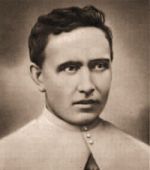Catholic Dictionary
Find accurate definitions of over 5,000 Catholic terms and phrases (including abbreviations). Based on Fr. John Hardon's Modern Catholic Dictionary, © Eternal Life. Used with permission.
Random Term from the Dictionary:
PATRIMONY OF ST. PETER
The lands, properties, and revenues from various sources belonging to the Holy See. Before the Peace of Constantine (A.D. 313) the Church's properties were very limited, but after his reign, by his gifts and those of newly converted nobles, the Church found herself possessing large estates. About A.D. 600 the Pope might have been called the largest landed proprietor in the world. Large farms, forests, whole villages with their cultivators, though free, constituted a massa. Many massae formed a patrimony, almost the equivalent in extent of a Roman province. These patrimonies were mainly located in Italy, with a few in the Orient, Gaul, Dalmatia, and Africa. Sicily had the most valuable, Rome the most numerous patrimonies. Naples, Gaeta, Tivoli, Ravenna, and Genoa contributed their share. All together they were called the Patrimony of St. Peter. Hospitals, monasteries, and churches were built and maintained, the freedom of slaves was purchased, the needy of Italy and elsewhere were relieved by the revenues of Peter's Patrimony. St. Gregory called it the Patrimony of the Poor.






